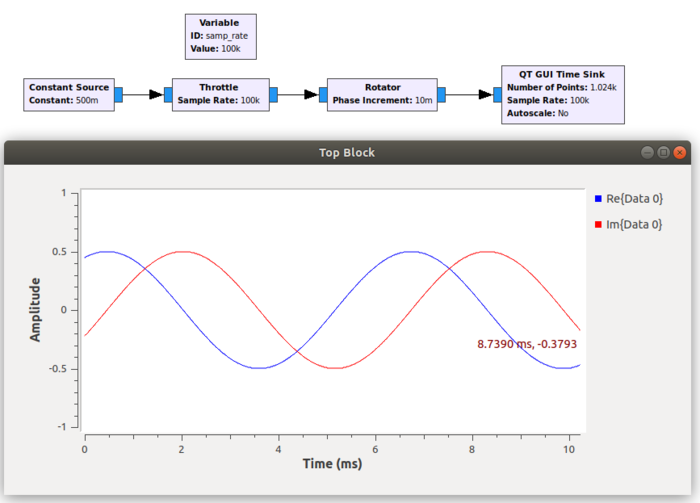Rotator: Difference between revisions
Jump to navigation
Jump to search
No edit summary |
(clarification) |
||
| Line 1: | Line 1: | ||
[[Category:Block Docs]] | [[Category:Block Docs]] | ||
Makes a complex rotator block. The phase increment (in radians) is | Makes a complex rotator block. The phase increment (in radians) is the amount of additional phase shift added to the signal every sample. So, the rotator block is the equivalent of multiplying by a complex sine. The "increment" is the amount of additional phase shift added to the signal every sample. So, the block is the equivalent of multiplying by a complex sine. | ||
== Parameters == | == Parameters == | ||
Revision as of 01:09, 25 April 2021
Makes a complex rotator block. The phase increment (in radians) is the amount of additional phase shift added to the signal every sample. So, the rotator block is the equivalent of multiplying by a complex sine. The "increment" is the amount of additional phase shift added to the signal every sample. So, the block is the equivalent of multiplying by a complex sine.
Parameters
(R): Run-time adjustable
- Phase Increment (R)
- Acts as the rotational velocity.
Example Flowgraph
In the example below a constant source, set to 0.5, is fed into the rotator, thus producing a sine wave. The phase increment is set to 0.01 radians and the sample rate is 100kHz, so that equates to 1000 radians every second, or 1000/(2pi) = 159 cycles per second. This corresponds to a period of about 6ms, as shown in the time sink.
Source Files
- C++ files
- TODO
- Header files
- TODO
- Public header files
- TODO
- Block definition
- TODO
